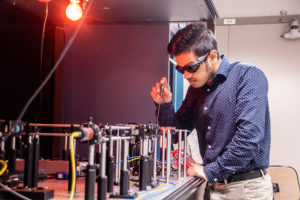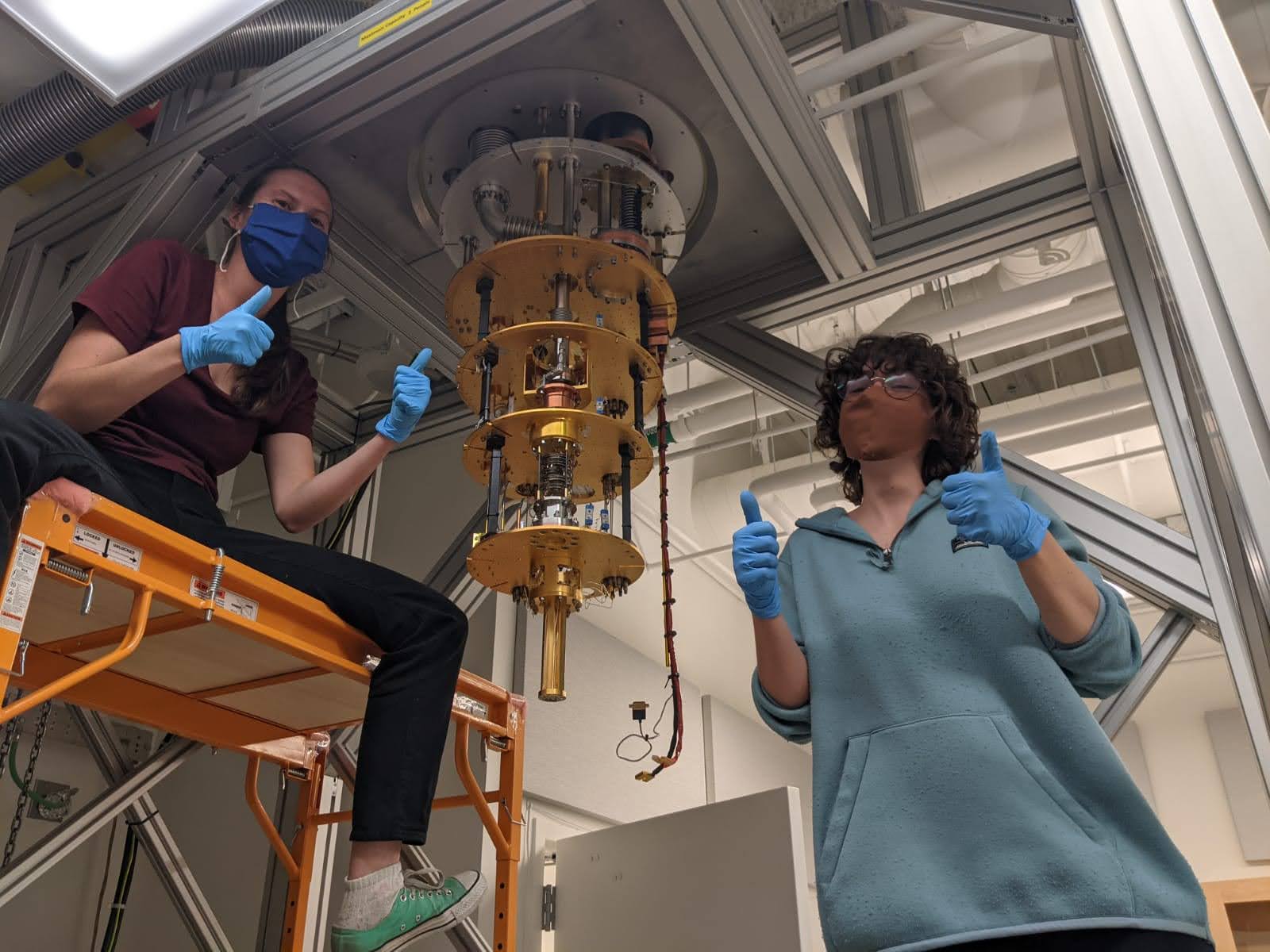OVERVIEW
OVERVIEW
OVERVIEW
 Recent progress in Quantum Information Science and Engineering (QISE) promises revolutionary developments that will fundamentally reshape our world. A well-prepared workforce is essential to fulfill this promise. The National Science Foundation Research Traineeship (NRT), award number 2125899, program at Colorado School of Mines prepares students from diverse backgrounds to become future leaders in the QISE workforce. Mines is partnering with San José State University (SJSU) on the new student training program and, with the NSF Research Traineeship funding, the two universities have developed interdisciplinary training programs focused on training master’s and doctoral students via a rigorous, interdisciplinary, integrated program to prepare graduate students for careers in QISE in industry, national labs, government, and academia. Some of the funding supports an MS/PhD bridge program so master’s students from SJSU, an Hispanic-serving institution in the California State University system, can study at Mines for a semester or two.
Recent progress in Quantum Information Science and Engineering (QISE) promises revolutionary developments that will fundamentally reshape our world. A well-prepared workforce is essential to fulfill this promise. The National Science Foundation Research Traineeship (NRT), award number 2125899, program at Colorado School of Mines prepares students from diverse backgrounds to become future leaders in the QISE workforce. Mines is partnering with San José State University (SJSU) on the new student training program and, with the NSF Research Traineeship funding, the two universities have developed interdisciplinary training programs focused on training master’s and doctoral students via a rigorous, interdisciplinary, integrated program to prepare graduate students for careers in QISE in industry, national labs, government, and academia. Some of the funding supports an MS/PhD bridge program so master’s students from SJSU, an Hispanic-serving institution in the California State University system, can study at Mines for a semester or two.
 Recent progress in Quantum Information Science and Engineering (QISE) promises revolutionary developments that will fundamentally reshape our world. A well-prepared workforce is essential to fulfill this promise. The National Science Foundation Research Traineeship (NRT), award number 2125899, program at Colorado School of Mines prepares students from diverse backgrounds to become future leaders in the QISE workforce. Mines is partnering with San José State University (SJSU) on the new student training program and, with the NSF Research Traineeship funding, the two universities will develop interdisciplinary training programs focused on training master’s and doctoral students via a rigorous, interdisciplinary, integrated program to prepare graduate students for careers in QISE in industry, national labs, government, and academia. Some of the funding will support an MS/PhD bridge program so master’s students from SJSU, an Hispanic-serving institution in the California State University system, can study at Mines for a semester or two.
Recent progress in Quantum Information Science and Engineering (QISE) promises revolutionary developments that will fundamentally reshape our world. A well-prepared workforce is essential to fulfill this promise. The National Science Foundation Research Traineeship (NRT), award number 2125899, program at Colorado School of Mines prepares students from diverse backgrounds to become future leaders in the QISE workforce. Mines is partnering with San José State University (SJSU) on the new student training program and, with the NSF Research Traineeship funding, the two universities will develop interdisciplinary training programs focused on training master’s and doctoral students via a rigorous, interdisciplinary, integrated program to prepare graduate students for careers in QISE in industry, national labs, government, and academia. Some of the funding will support an MS/PhD bridge program so master’s students from SJSU, an Hispanic-serving institution in the California State University system, can study at Mines for a semester or two.
RESEARCH
Our research efforts will address three grand quantum challenges.
- How can we achieve demonstrable quantum speed-up with near-term quantum resources?
- How can materials and electrical engineering interface with quantum technologies to take us beyond the 2021 Materials Genome Initiative and other largescale materials research efforts?
- How can new directions in quantum algorithms running on quantum and classical computers push forward and challenge the notion of quantum supremacy?
TRAINING
Our program to train a quantum workforce to meet these challenges contains:
- A complete curriculum to enable all STEM students to come up to speed in fundamental topics in quantum computing, simulation, and sensing to prepare them for transformative careers in QISE.
- A research traineeship program in collaboration with National Labs (NREL, NIST and LLNL) and industrial partners (Google and IBM), including cutting-edge research and direct access to new quantum platforms such as the LLNL Qudit testbed.
- Professional skill development via integration of courses in the program core and workshops on relevant topics such as teamwork and communication.
One of the goals of the Quantum Engineering NRT is to support diversity among researchers in quantum engineering. We welcome all interested students into the traineeship and particularly encourage women, underrepresented minorities, veterans, and those with disabilities.
Images
Barium trapped ion crystal, Credit: AFRL Information Directorate
A space Communications and Navigation intern testing equipment in the Quantum Communications Lab at NASA’s Glenn Research Center, Credit: NASA
Quantum Engineering students installing filters in a dilution fridge. Credit: Meenakshi Singh, Colorado School of Mines
